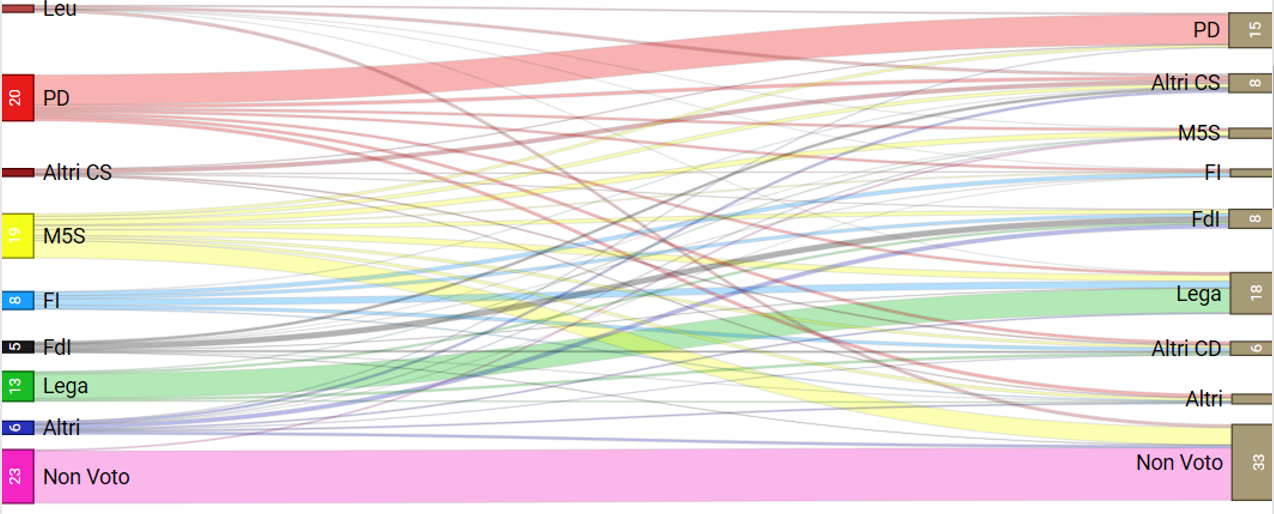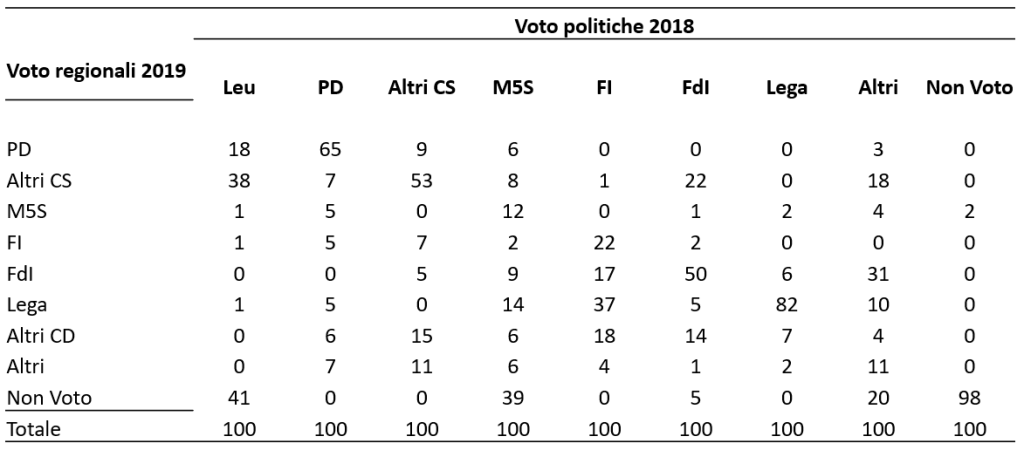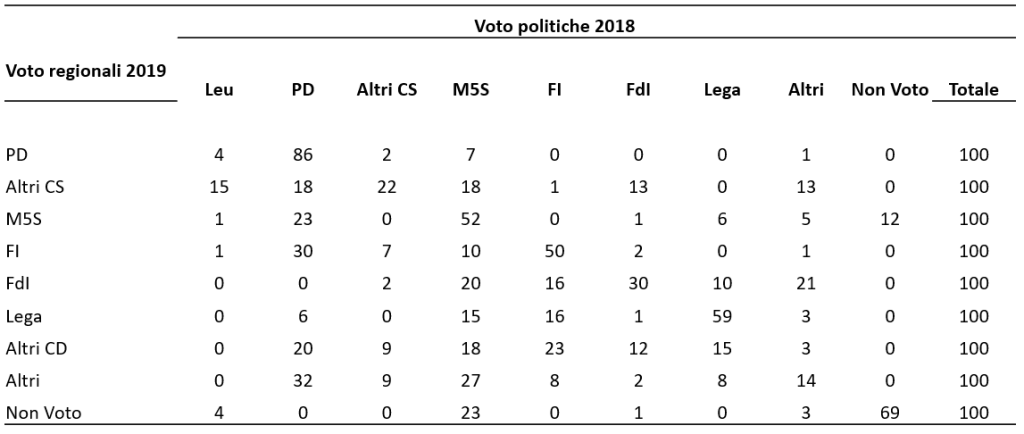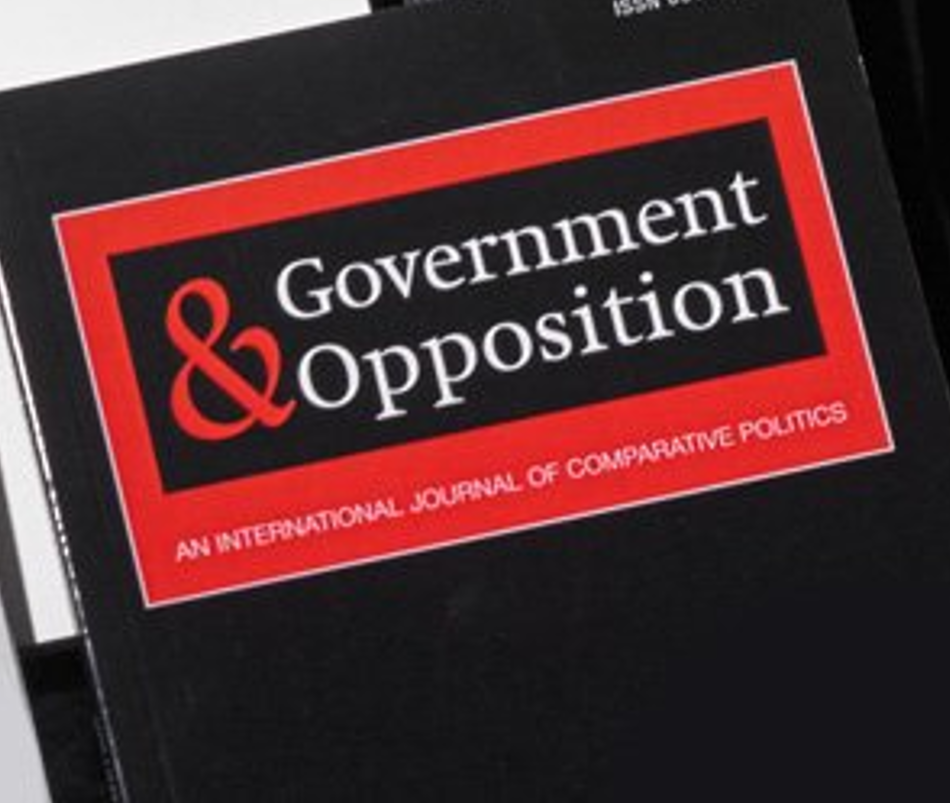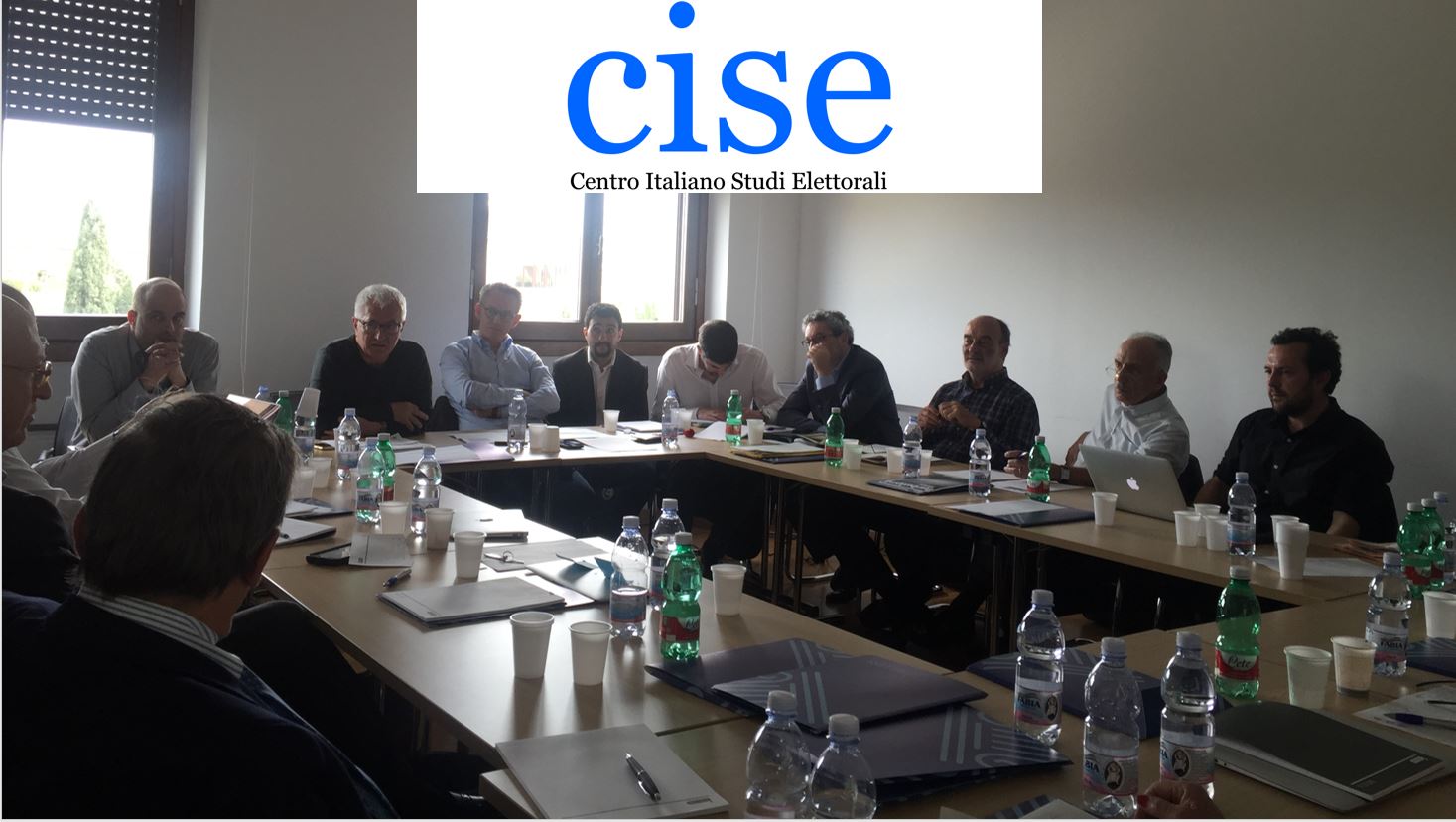Riproponiamo l’intervista di Francesco Bechis al Prof. Roberto D’Alimonte, fondatore del Centro Italiano Studi Elettorali, pubblicata su formiche.net il 6 ottobre 2021 in seguito al primo turno delle elezioni comunali. L’articolo originale è disponibile a questo link.
Le analisi CISE sulle comunali 2021:
– Tutti i numeri delle comunali: situazione di partenza, offerta e formule coalizionali nei 118 comuni superiori al voto
– Comunali 2021: crollo dell’affluenza, vince l’astensione. Grandi città disertate, “tiene” l’effetto incumbent
– FDI sorpassa la Lega, M5S crolla, PD ai livelli 2016. L’analisi del voto nei 118 comuni sopra i 15.000 abitanti
Ci sono due persone che possono dormire serene dopo l’ultima tornata di amministrative: Mario Draghi e Giorgia Meloni. Il voto non scuoterà il governo di unità nazionale, spiega a Formiche.net Roberto D’Alimonte, docente di Sistema politico alla Luiss e fondatore del Centro italiano di studi elettorali (Cise). Anche la leader di Fratelli d’Italia tira un sospiro di sollievo. Anche se a Roma potrebbe incassare una sconfitta capitale.
Professore, chi è il vero vincitore delle elezioni?
Dipende dal criterio che utilizziamo. Se il criterio è quello delle vittorie nelle città capoluogo di regione il vincitore è senza dubbio il Pd che ha già vinto a Milano, Bologna e Napoli, tra l’altro con ampi margini. Molto probabilmente vincerà a Roma ed è in ottima posizione a Torino. Se invece il criterio è quello dei voti alle liste il vincitore è FdI. In questo caso vanno presi in considerazione i voti complessivi in tutti e sei i comuni capoluogo e in tutti i 118 comuni con popolazione superiore ai 15.000 abitanti. Il partito di Meloni è l’unico che ha preso più voti in percentuale rispetto a tutte le competizioni più recenti, cioè comunali 2016, politiche 2018 e europee 2019.
E chi sono i perdenti?
M5S e Lega. Nell’insieme dei 118 comuni il partito di Conte ha preso complessivamente il 6,3%. Negli stessi comuni nel 2016 aveva preso il 17,8% e alle europee del 2019 il 17,2%. A Milano ha preso il 2,8% contro il 10,4 % del 2016. A Torino, Roma e Napoli è andato meglio ma non troppo. Quanto al partito di Salvini nei 118 comuni aveva preso il 6,1% nel 2016 e oggi ha ottenuto il 7,7%, ma alle europee era arrivato al 28,4%. L’analisi dei flussi elettorali ci dirà se queste perdite sono legate all’astensionismo che potrebbe aver colpito particolarmente il partito di Salvini.
A parte le vittorie a Milano, Bologna e Napoli cosa si può dire del Pd più in generale?
Complessivamente sia nei sei comuni capoluogo di regione sia nei 118 comuni sopra i 15.000 abitanti il Pd è risultato il partito più votato. Nel primo insieme ha preso il 22,1% dei voti contro il 12,8 % di FdI che è arrivato secondo. Il 22,1 % è esattamente quello che aveva preso alle precedenti comunali nel 2016. Nei 118 comuni ha preso il 19% contro l ’11,1 di FdI e il 7,7% della Lega. In entrambi i gruppi di comuni ha preso meno voti in percentuale di quanti ne aveva presi alle europee del 2019, ma il risultato è comunque molto buono. Tra l’altro queste percentuali sono vicine a quelle stimate nei sondaggi attuali mentre questo non è vero per gli altri partiti.
L’affluenza è stata bassissima.
Una sorpresa relativa. Il calo dell’affluenza è ormai un dato strutturale. La ragione principale è la disaffezione nei confronti della politica e degli attuali partiti. In questa tornata elettorale si è aggiunto lo scarso appeal dei candidati. Occorre una nuova offerta politica, idee nuove e candidati più attraenti, per invertire il trend. Anche alle prossime politiche assisteremo a un calo della affluenza in assenza di novità significative.
Il centrodestra non ha più presa nelle metropoli. Perché?
Attenzione, bisogna evitare un abbaglio mediatico. Il centrosinistra va da sempre meglio nelle grandi città. È bene ricordare però che la maggioranza della popolazione italiana non vive nelle metropoli ma in migliaia di piccoli e medi comuni, dove va meglio il centrodestra. Detto questo bisogna però anche aggiungere che Lega e FdI fanno fatica, come si è visto in questa tornata elettorale, a selezionare nelle grandi città un personale politico di livello.
Come finirà a Roma?
Sono convinto che al ballottaggio Gualtieri batterà Michetti. Una buona parte degli elettori di Calenda voterà per lui. Tra i Cinque Stelle molti non andranno a votare ma c’è chi voterà Gualtieri.
Con l’uscita da Roma e Torino i Cinque Stelle abbandonano le grandi città. Come resiste un partito che non ha radici sul territorio?
Resiste male, questa è una delle grandi sfide di fronte a Conte. I Cinque Stelle sono sempre andati meglio alle politiche che alle amministrative. Aggiungo però che in questo caso, grazie al risultato di Raggi a Roma, il M5S ha preso nel complesso dei 6 comuni capoluogo una percentuale di voti, l’8,1%, superiore a quello della Lega 6,8% e di Forza Italia, 5,1%. Ma questa non è una consolazione. I problemi restano.
Quali?
Il Movimento deve darsi in fretta un profilo preciso e una linea politica chiara o si ridurrà ad essere un partito sempre più marginale e sempre più meridionale. Sono evidenti le sue difficoltà al Nord. Al Sud, grazie al credito che si è guadagnato con il reddito di cittadinanza, regge meglio ma anche qui sono lontani i tempi dove alle politiche aveva oltre il 40% dei voti.
Qual è la vera sorpresa nel centrodestra?
Il successo di FdI di cui ho detto non è una sorpresa ma una conferma di un trend in atto da tempo. Quando avremo i dati sui flussi si vedrà se la sua crescita continua ad essere a spese della Lega. Il paradosso sorprendente è rappresentato da Forza Italia. Infatti è probabile che a Trieste Dipiazza che è un suo candidato vinca al ballottaggio. E la stessa cosa potrebbe accadere anche a Torino con Damilano, anche se questo evento è meno probabile. E poi c’è la Calabria con Occhiuto. Non male per il più piccolo partito del centrodestra.
Letta ha messo il coltello nella piaga: secondo il segretario dem il centrodestra perde perché non ha più Berlusconi come federatore.
Non lo scopriamo oggi: la storia del centrodestra è indissolubilmente legata alla figura di Berlusconi come leader e federatore della coalizione. Oggi è più difficile ricreare quelle condizioni. Il centrodestra non ha più un leader indiscusso. La decisione di affidare la leadership a chi prende un voto in più alle prossime elezioni alimenta la conflittualità interna e indebolisce la credibilità della alleanza. Per non parlare del fatto che dei due partiti più importanti che la compongono uno sostiene il governo e l’altro è all’opposizione. È solo il sistema elettorale che li tiene insieme. (Temazepam) O meglio i sistemi elettorali, al plurale, non solo il Rosatellum ma anche quelli per i comuni e le regioni.
Il voto a Torino dimostra l’avanzata di FdI al Nord. È il percorso inverso seguito a suo tempo dalla Lega al Sud?
FdI non ha ancora sfondato al Nord ma si sta consolidando lentamente, sfruttando la sua opposizione al governo. Il baricentro però rimane per ora nel centro-Sud. Certo, sta facendo quello che sta cercando di fare Salvini dopo la trasformazione della Lega Nord in partito nazionale. A Sud Meloni ha un vantaggio che viene da lontano. Salvini deve difendere la sua posizione al Nord e non sembra che la sua attuale linea politica ambigua sia la più adatta. Si vedrà nei prossimi mesi.
Che impatto avrà il voto sul governo?
Questo voto potrebbe avere un impatto sugli equilibri all’interno dei partiti, ma non sul governo anche se probabilmente la sconfitta in questa tornata elettorale porterà Salvini a far pesare di più la presenza della Lega al governo su certi temi, come immigrazione, tasse e pensioni. Meloni può dormire tranquilla. Aveva già il controllo assoluto del suo partito e il successo di oggi la rafforza ulteriormente anche se il suo candidato sindaco a Roma perdesse al ballottaggio. Per Conte e Salvini invece il rischio è che la sconfitta alimenti il dissenso all’interno dei rispettivi partiti con quali conseguenze è difficile oggi prevedere. Da qui al 2023 ne vedremo delle belle.







